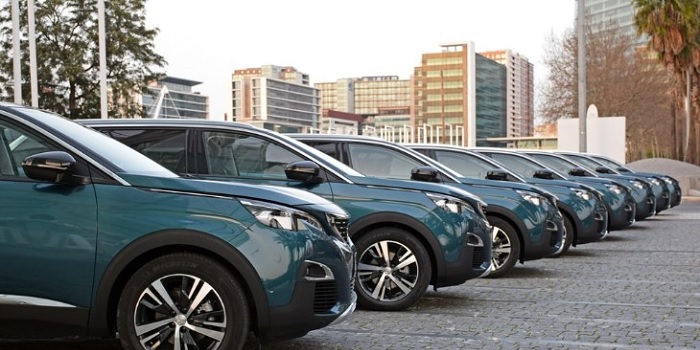Ways for governments to effectively manage your EV fleets

A 2021 Executive Order requires most federal vehicle procurement to be zero-emission vehicles by 2035. To meet that requirement, federal agencies must buy about 30,000 vehicles each year to hit that goal. While not mandatory for state or local government units (LGUs), many are choosing to move to electric vehicle (EV) fleets and adding charging stations and accessories.
For agencies wanting to purchase EV fleet vehicles, cooperative contracts can help streamline the process.
Why purchase EV fleets?
According to the U.S. Energy Administration, nearly 90% of the energy used in transportation comes from petroleum products, which make up almost a third of all greenhouse gas emissions.
Besides reducing greenhouse gases, government agencies are buying EVs to support public policy in improving energy independence and the use of renewable energy. Other benefits include:
- Fewer moving parts, which equate to less maintenance
- Helping improve local air quality
- Reduction in fuel costs vs. gasoline
In many cases, purchasing EVs can also meet goals for cost reduction or cost control within government bodies. Studies show that the return on investment for public agencies can range as high as fourteen times the level of expenditures.
One challenge for state government agencies has been access to charging stations. However, the 2023 federal infrastructure law also earmarked $78.5 billion for EV charging improvements to create more public charging stations and make it easier to find places to recharge. This is less of an issue in local jurisdictions, as most local EVs travel within smaller areas, where they can return to their home base for charging if necessary.
How cooperative contracts can accelerate the transition to EV fleets
Cooperative contracts enable state and local governments to leverage the combined purchasing power of public agencies. You can opt in to competitively solicited contracts and avoid the lengthy RFP, solicitation, and review process to save time and money.
The process itself is simple. Choose the vehicle make, model, and configurations that you want. Find a contract and then contact the supplier directly. While there is no cost and no obligation to use Sourcewell, agencies have the option to choose pre-negotiated pricing that meets regulations for competitive sourcing.
Sourcewell has existing competitively-sourced contracts for EVs, including:
- Fleet vehicles
- Buses
- Utility vehicles
- Off-road vehicles
- UTVs and ATVs
- Snowmobiles
- Charging stations
There are also contracts for EV accessories, such as Geotab USA, which provides GPS tracking, telematics, and engine diagnostics for EV fleets.
Leverage incentives and rebates
Competitively solicited contracts include maximum rebates. You can view a list of all current incentives and rebates associated with EVs by state on the National Conference of State Legislatures website. Each state has different programs, and in some cases, incentives are limited to specific utility company service areas.
There are also federal grants and tax credits available through the U.S. Department of Energy that may apply to government bodies purchasing EV fleets and hybrid vehicles.
The benefits of cooperative contracts
The combined purchasing power typically results in lower overall costs for procurement, based on the economies of scale from higher volume. This is especially valuable for smaller LGUs that don’t purchase large fleets. Volume discounts also make it less expensive for accessories, such as logistics or telemetric equipment.
There are other benefits of a streamlined buying process that simplifies the complex and time-consuming solicitation and review process. Cooperative contracts provide transparency in procurement, as all are competitively sourced and have clearly defined terms.
They also help eliminate inequities among government entities and provide consistency across government units, enabling even small agencies or communities to pay similar pricing as large purchasers.
There are considerable time savings when using cooperative contracts. Since the labor-intensive tasks involved in the procurement process are eliminated, resources can be used on more strategic projects. When time is of the essence in replacing vehicles, cooperative contracts also enable governmental units to bypass the lengthy RFP process and get the vehicles that they need quickly.
Easier, faster, less-expensive purchasing of EV fleets
Sourcewell’s cooperative purchasing program makes it easier, faster, and less expensive to purchase EVs. You can streamline the public procurement process by choosing from hundreds of suppliers already on contract. Sourcewell’s procurement experts competitively solicit and award contracts on behalf of 50,000 participating agencies in North America.
View available Sourcewell contracts to see how you can save time and money when purchasing EVs, charging stations, and accessories.
Here at Sourcewell, we help public agency buyers procure fleet vehicles faster by fulfilling the time-consuming bid process for them. Through cooperative contracts, we expedite the fleet vehicle procurement process so you can better serve your teams.
Want a faster procurement process? Contact one of our specialists today to buy the fleet solutions you need!


